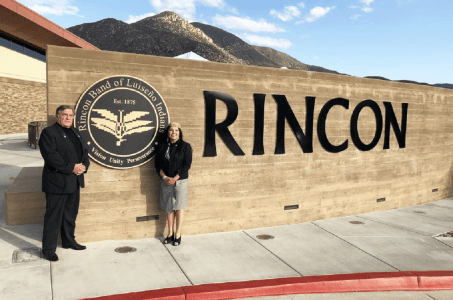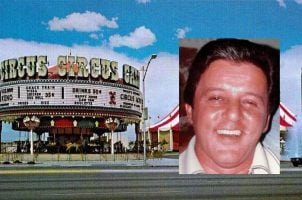MGM Resorts Says Connecticut Should Hold Competitive Bidding Process After Judge Deals Blow to Tribal Plan
Posted on: October 3, 2018, 06:59h.
Last updated on: October 5, 2018, 11:58h.
MGM Resorts says its offer to build a $675 million commercial casino resort in Bridgeport, Connecticut, still stands after a federal judge’s decision has thrown a planned tribal satellite gaming facility in East Windsor into jeopardy.

In a statement to 22News WWLP, MGM said Connecticut lawmakers should “pass legislation calling for competitive bids on any new commercial casino.”
Federal District of Columbia Judge Rudolph Contreras ruled recently that the US Department of the Interior (DOI) has no legal obligation to issue decisions on revised gaming compacts among sovereign tribes and state governments.
The ruling effectively nullified the legality of a $300-$400 million satellite casino being jointly constructed by the Mashantucket Pequot and Mohegan Native Americans.
DOI Delivers DOA
Connecticut Governor Dannel Malloy (D) signed legislation into law last fall that authorized the state’s two tribes to construct the East Windsor gaming venue featuring 2,000 slot machines and 150 table games. However, it came with the condition that the DOI approve the casino on non-sovereign land would not void the revenue-sharing arrangements the state has in place at Foxwoods and Mohegan Sun.
The state is looking to protect its dwindling tax revenue that comes from the two tribal casinos. In 2007, the state’s 25 percent share equated to $430 million. In 2017, that number was down 38 percent to $267 million.
The August opening of the $960 million MGM Springfield casino just five miles north of the Massachusetts-Connecticut border is seen as a further threat to cut gross gambling revenue at Foxwoods and Mohegan Sun.
Now, it appears MGM Springfield will retain its gaming monopoly on the region, and presumably poach some Connecticut residents to its casino floor.
Decisions Ahead
When the Connecticut Assembly reconvenes in 2019, lawmakers will be tasked with deciding which course of action, if any, to take in deciding the future of gambling in the state. Bridgeport representatives introduced legislation during the last session to revoke the East Windsor license in favor of holding a competitive bidding process where both commercial and tribal groups could present proposals.
That would, however, cancel the tribes’ gaming compacts and allow them to operate Foxwoods and Mohegan Sun without sharing a nickel with the state. MGM contests that the state’s decision to allow the Mashantucket and Mohegan tribes to operate a casino on non-sovereign land would have legalized commercial gambling.
The thorough and unambiguous federal court ruling can only be seen as a clear rejection of the Tribes’ insistent efforts to obtain a no-bid commercial casino license in Connecticut,” MGM Resorts said in a statement.
MGM’s pitch is that just as the casino operator did in Springfield, an integrated resort in Bridgeport would revitalize the struggling city and provide much-needed jobs, tourism, and taxes. MGM has pledged a $50 million license fee, minimum $675 million investment, and $8 million in annual aid to Bridgeport.
Related News Articles
Employee Charged with Aiding $193K Wind Creek Montgomery Casino Robbery
California Tribes Sue Card Clubs Over ‘Illegal’ House-Banked Games
Most Popular
Las Vegas Overstated F1 Race’s Vegas Impact — Report
Vegas Strip Clubs Wrestle in Court Over Animal Names
Mega Millions Reportedly Mulling Substantial Ticket Price Increase
Las Vegas Strip Stabbing Near The Strat Leaves One Man Dead
Most Commented
-
End of the Line for Las Vegas Monorail
— April 5, 2024 — 90 Comments -
Mega Millions Reportedly Mulling Substantial Ticket Price Increase
— April 16, 2024 — 6 Comments -
Long Island Casino Opponents Love New York Licensing Delays
— March 27, 2024 — 5 Comments
















No comments yet